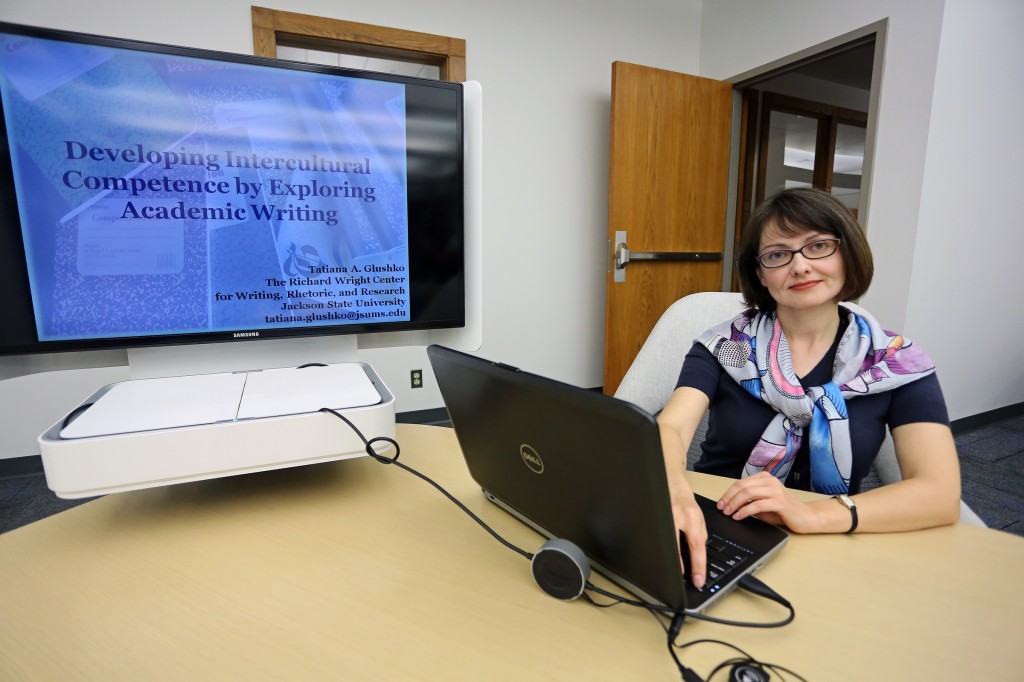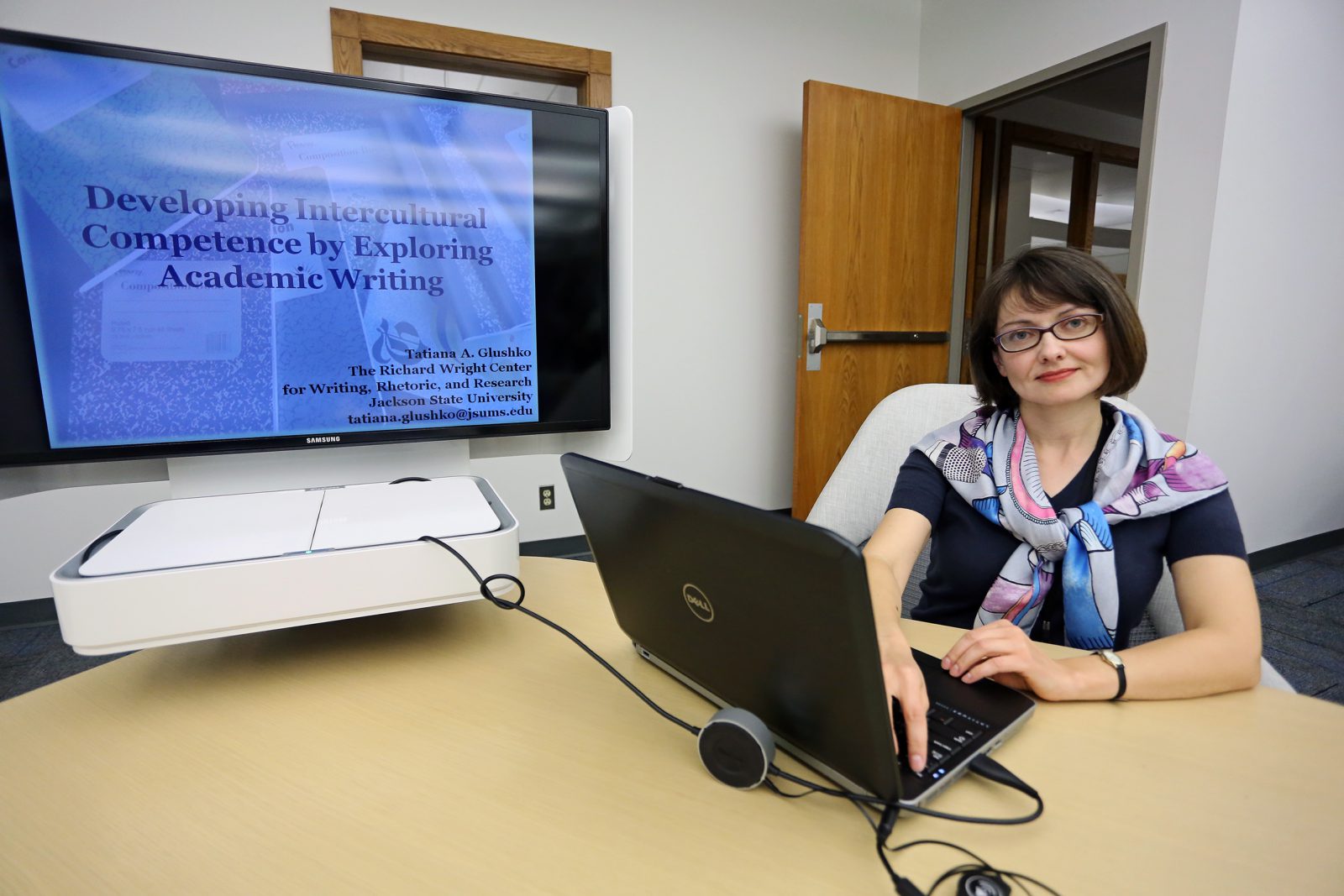Jackson State University’s Dr. Tatiana Glushko recently gave a workshop in Russia, but she didn’t go there.
The coordinator of The Richard Wright Center for Writing, Rhetoric, and Research conducted the workshop here in the USA on the Internet via Skype.

The topic was developing intercultural competence in academic writing at The 7th International Conference on Current Problems of Interactions of Languages at Amur State University in Blagoveshchensk, Russia.
Glushko, a Russian native, knows the topic firsthand. She came to JSU as a student in 2006, earning a masters degree in English and a doctorate in urban higher education.
In English academic writing, she said, “the writing is linear,” leading toward a conclusion; but Russians may use stories that “are seemingly unrelated to the idea.”
This was something she had to learn in her own academic writing. Since she grew up in Russia, it was natural to illustrate ideas, but “my professor might say this is irrelevant to the topic.”
Other characteristics differ, as well:
— Russians “are not taught to express ideas and think critically as in the United States because of the authoritarian government.”
— In the United States, “we teach writing as a process,” whereas, in Russia, “the product of writing” is given greater emphasis.
— In the United States, it’s the writer’s responsibility to write clearly so the reader understands, whereas, in Russia, the responsibility for decoding what is written is upon the reader.
Glushko’s workshop could even lead to better diplomacy between the two countries. Jerrold Frank, from the English Language Office of the U.S. Embassy in Russia, was at the conference and attended her presentation.
The purpose of his office is to “enhance mutual understanding between the peoples of the Russian Federation and the U.S.” It is coordinated by the Office of Language Programs in the U.S. Department of State’s Bureau of Educational and Cultural Affairs.
Glushki’s workshop was developed with a colleague from Russia, Dr. Natalia Zaychicova. They are planning to build on the presentation and submit a proposal to the 2016 TESOL Convention (Teachers of English to Speakers of Other Languages) in June 2015 for presentation the following year.
In her work at the Wright Center, Glushko tutors students in writing and works with faculty to develop assessments, criteria and guidelines for writing. She has been coordinator of the center since 2009.







